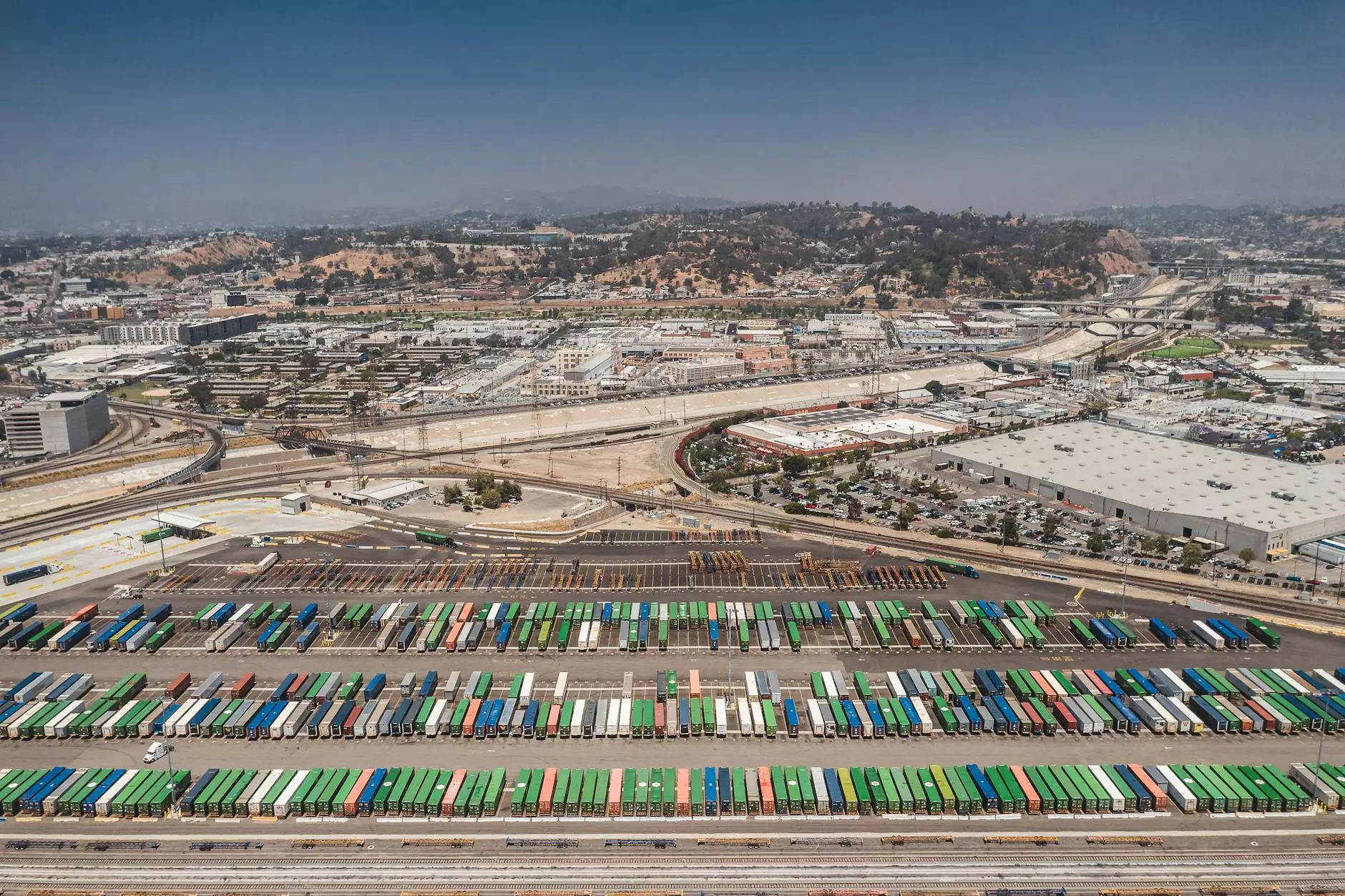Understanding LTL Freight Shipping Quotes: A Comprehensive Guide

In today's competitive marketplace, effectively managing your shipping costs is vital for maintaining profit margins. One of the most economical methods for shipping goods, particularly for smaller loads, is through Less Than Truckload (LTL) freight shipping. This guide will provide crucial insights into LTL freight shipping quotes, helping businesses like yours navigate this essential aspect of logistics.
What is LTL Freight Shipping?
Less Than Truckload (LTL) freight shipping refers to the transportation of relatively small freight loads that do not require a full truck for delivery. This method is ideal for shipments ranging from 150 to 15,000 lbs and is particularly beneficial for businesses that do not have enough freight to fill an entire trailer. By consolidating cargo from multiple customers into one truck, LTL shipping offers a cost-effective solution compared to shipping via full truckload (TL).
The Importance of LTL Shipping in Modern Logistics
As businesses evolve, the demands for flexible, cost-efficient shipping solutions have grown. The importance of LTL shipping is highlighted by:
- Cost Efficiency: Sharing transport space with other businesses significantly reduces shipping costs.
- Environmental Impact: Fewer trucks on the road means reduced carbon emissions, aligning with sustainability goals.
- Flexibility: Businesses can ship smaller loads more frequently without excess costs.
Factors Influencing LTL Freight Shipping Quotes
Understanding the components that contribute to LTL freight shipping quotes is critical for businesses looking to optimize their logistics. Here are the primary factors:
1. Weight and Dimensions of the Shipment
The total weight of your freight directly impacts the shipping quote. LTL carriers often charge based on weight, which means the heavier your shipment, the higher the cost. Furthermore, the dimensions (length, width, and height) of the cargo are crucial; larger shipments may occupy more space, resulting in additional fees.
2. Freight Class
Freight classification is a standardized system used to categorize cargo based on its density, stowability, handling, and liability. The National Motor Freight Classification (NMFC) assigns a class number to each shipment, which helps streamline the quoting process. Knowing your freight class can help you understand potential shipping costs.
3. Distance and Shipping Routes
The distance from the origin to the destination plays a significant role in determining LTL freight shipping quotes. Longer distances generally incur higher transportation fees. Additionally, shipping through densely populated areas may introduce extra charges due to accessorial costs.
4. Service Level Selection
Companies can choose various service levels when shipping LTL freight, which can affect the quote. Standard service is cost-effective but slower, while expedited services are available for those who need faster delivery. Make sure to evaluate your needs before selecting a service level.
5. Additional Services and Accessorial Charges
Extra services such as liftgate delivery, residential pickup/delivery, or inside delivery can lead to additional charges. Understanding these accessorial fees is crucial for accurately budgeting your LTL shipping costs.
How to Obtain LTL Freight Shipping Quotes
Getting accurate and competitive LTL freight shipping quotes involves a few simple steps. Below is an outlined process that businesses can follow:
1. Gather Essential Shipment Information
Before requesting quotes, ensure you have the following details:
- Weight and dimensions of the shipment
- Pickup and delivery addresses
- Frequency of shipments (one-time or recurring)
- Expected delivery timeframe
- Type of freight and classification
2. Use Online Freight Quote Tools
Many logistics companies and freight brokers offer online tools that allow you to input shipment details and receive instant quotes. Websites like freightrate.com provide an excellent starting point for obtaining multiple LTL freight shipping quotes quickly and efficiently.
3. Contact Freight Brokers or Carriers
For personalized service, consider reaching out directly to freight brokers or carriers. This can be especially helpful if your shipment requires specialized handling or you have unique shipping needs.
4. Compare and Analyze Quotes
Once you have received multiple quotes, take the time to compare them thoroughly. Look beyond just the price; consider the service level, transit time, and customer reviews of the carrier to determine the best option for your business.
Benefits of Using LTL Freight Shipping Quotes
LTL freight shipping is not just a way to save costs; it also provides a range of benefits for businesses. Here are some key advantages of utilizing LTL freight shipping quotes:
1. Cost Savings
One of the most significant advantages is the reduction in shipping expenses. By sharing space with other shipments, businesses can enjoy lower rates than they would by shipping full truckloads.
2. Improved Cash Flow
For small to mid-sized businesses, maintaining a tight cash flow is essential. LTL shipping allows these companies to pay for only the shipping they need, facilitating better financial planning.
3. Enhanced Flexibility
With LTL shipping, companies can ship more frequently without being limited to full truckloads. This level of flexibility is particularly advantageous for businesses with fluctuating demand.
4. Increased Shipping Options
LTL shipping allows access to a broad range of carriers and services. It opens up numerous options for delivery speed, freight management, and tracking capabilities.
Best Practices for Managing LTL Freight Shipping
- Choose Reliable Carriers: Research and vet carriers to ensure they have a good reputation and track record.
- Consolidate Shipments: Combine smaller shipments to maximize cost-efficiency and minimize the number of shipments made.
- Accurate Documentation: Ensure that all shipping documentation is accurate to avoid delays and disputes.
- Work with a Freight Broker: A knowledgeable freight broker can help you navigate the complexities of LTL shipping.
Conclusion
Effectively navigating the world of LTL freight shipping quotes is essential for businesses looking to optimize their shipping strategy and control costs. By understanding the factors that influence quotes, learning how to obtain them, and implementing best practices, companies can enhance their logistics processes and improve their bottom line. At freightrate.com, we strive to provide you with the best tools and resources to succeed in your shipping endeavors.



